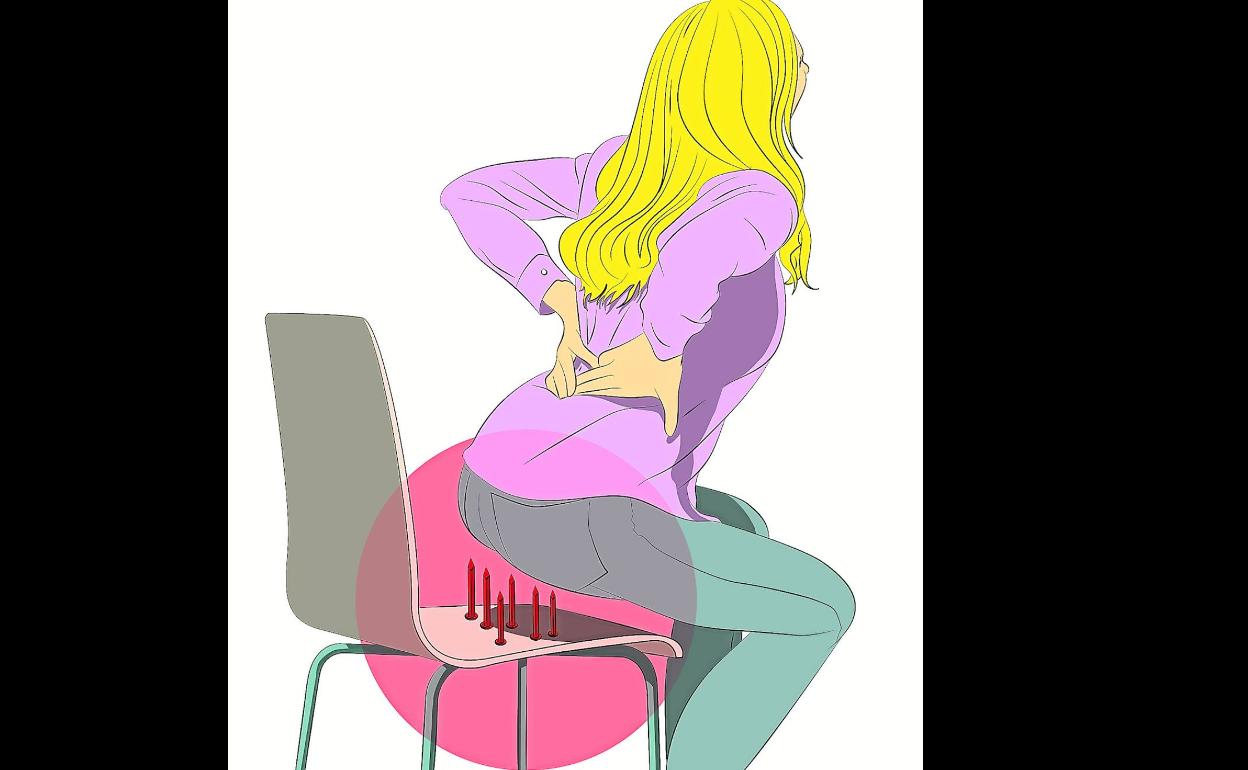No need to suffer haemorrhoids in silence
A high-fibre diet and correct hygiene can help, or if nothing else works, there's always surgery
CARMEN BARREIRO
Friday, 22 July 2022, 10:53
Specialists in the treatment of haemorrhoids say, half in jest and half seriously, that the population is divided into people who have piles and people who are going to get them. The anecdote serves to give us an idea of how many people suffer from this common condition, and how rarely anyone talks about it.
"Nearly all of us will have them at some time in our lives, although it is calculated that 'only' half of people suffer because of them. Pathological haemorrhoids, the ones that get inflamed and cause discomfort such as itching, feeling uncomfortable, a sensation of pressure, burning or bright red blood, mainly affect middle-aged men and women, pregnant women and recent mothers," says pharmacist Juan Desmonts.
Before treating them it is important to confirm that they really are piles, "because they are often confused with a fissure, fistula or even a minor infection," warns Dr Izaskun Badiola, a proctologist at the San Juan de Dios hospital.
"The first thing to remember is not to use toilet paper. Ideally wash with soap and water""Pregnancy and giving birth, chronic constipation or even weightlifting are among causes of piles"
Broadly speaking, one could say that a haemorrhoid is a swelling of the veins in the anus (external) or the rectum (internal) which may protrude (prolapsed). Most of the time this is a temporary situation, but sometimes they can prove disabling for the person who suffers from them. These are some of the keys to explain how to prevent and how to treat them.
Causes
Chronic constipation, diarrhoea, pregnancy...
As well as a genetic component, piles are mainly caused by excessive pressure on the veins of the anus and rectum and the reason for this is normally "pregnancy, giving birth, chronic constipation, but also diarrhoea, obesity, a sedentary lifestyle, lifting weights every day, alterations to the sphincter... in addition, ageing is another risk factor for haemorrhoids due to the weakening of the tissues which support the ano-rectal areas," says Juan Desmonts.
Dr Badiola also points out that pregnancy, especially in the last three months, "is one of the times when haemorrhoidal crises occur, together with giving birth. With the effort of pushing the baby out, the problem of piles tends to get out of control," she says.
Four levels
From occasional discomfort to a debilitating condition
Specialists distinguish four levels of discomfort, depending on the level of protuberance and how long the haemorrhoid is outside. If the little lump we notice goes back inside by itself, that would be a level 2. If we have to help it with a finger and it stays inside, it would be level 3. And if it's outside all the time then we would be talking about level 4.
With haemorrhoids, action needs to be taken from the start to prevent them getting worse, but it is true that some level 4 patients barely notice them and others at a lower level suffer greatly.
"The treatment depends on how much discomfort the patient is in," says Dr Badiola.
Prevention
A high-fibre diet, avoid caffeine and alcohol, don't spend too long in the bath...
One of the keys to preventing these uncomfortable piles is to lead a healthy lifestyle from a diet and hygiene point of view. "It's important to have a high-fibre diet and drink water frequently so you don't strain when you go to the bathroom. Putting your feet on a bench so your knees are higher than your hip when you're sitting on the toilet will ensure that the anus is more open and will facilitate the bowel movement. However, don't spend too long in the bathtub or abuse substances like alcohol, caffeine or spicy foods," says Dr Badiola.
Having an active life (practising sport, walking) and not spending hours standing up or lying down will also help to prevent piles.
Treatments
Ointments, but only occasionally; surgery for the most complicated cases
The first thing to remember, if you have haemorrhoids, is not to use toilet paper. "Ideally you should wash with soap and water after going to the toilet, and dry yourself well. That can help a lot," says Dr Badiola.
If that is not possible, there are special wipes to use for cleaning. Ointments can also help to reduce discomfort, but should only be used occasionally because some contain corticosteroids.
Sitting in a bath of warm water for ten minutes might also work.
If none of these are effective, the next step is to take ibuprofen or paracetamol to reduce the inflammation. And if the pile is outside, it should always be pushed back in with a finger.
If even that isn't enough, there are techniques such as bands or sclerotherapy to heal the haemorrhoid and, as a last resort, surgery.
Juan Desmonts says that in the case of bleeding, a doctor should be consulted as soon as possible "because it might not be due to haemorrhoids but to other illnesses like colorectal or anal cancer, Crohn's disease, ulcerative colitis, diverticulitis, polyps or gastric ulcers," he adds.
